Artificial Intelligence
Ten trade unions: How AI affects our jobs
Nivette Dawod
Published at 4:50 p.m
Almost half of the employees at the game company Mindark are fired – and replaced by AI robots.
Is it the future for more industries?
Aftonbladet has put the question to the ten largest trade unions.
At the end of August, 25 people – almost half of the employees – at the gaming company Mindark in Gothenburg were made redundant.
Their jobs as designers and graphic artists will in future be handled by AI-robots.
The whole thing is an efficiency measure, according to CEO Henrik Nel.
For Hugo Borg and his colleagues who were dismissed, the decision came as a shock, the 23-year-old tells Aftonbladet.
- I don't think AI will be able to do our job. Not yet anyway, he also says.
That artificial intelligence is changing our reality – and our jobs – is something that is widely discussed.
What does the future actually look like for Sweden's industries?
Aftonbladet has put the question to the ten unions with the most members.
Looking positive
Common to the answers is that trade unions look positively on technological development that can facilitate and develop members' work. Many emphasize that the development of AI can mean that professional roles change and perhaps improve when artificial intelligence is used as an aid and makes it more efficient.
Johan Kreicbergs, director of social policy at the trade union Sweden's Engineers, which gathers roughly 169,000 members, says that many companies in his industry have been working with AI for several years.
- We currently see that our members are in high demand and that new professional roles and types of engineers are emerging, such as "prompt engineers", who work with teaching AI. We believe that the companies that will be the winners of the AI journey are those that use AI to empower their employees, not to replace them.
He believes the demand for engineers will continue to be strong.
- But on the other hand, they will probably work with partly different things than today. Repetitive and everyday tasks can be replaced with more advanced ones.
There are concerns
But several trade unions also raise concerns.
Marie Nilsson, union president at IF Metall,
which has around 300,000 members, says that AI can mean great opportunities for the industry. But also risks if the technology is not handled correctly:
- It can facilitate heavy and monotonous work, improve planning of operations and contribute to fewer occupational injuries. But it is important that development takes place on people's terms and that people should always be involved when digital technology is used to make decisions that affect the work.
She believes that most occupations within IF Metall's industry can be affected, but to varying degrees.
- Some may disappear, while others are added. It is very important that our members are given the right skills development and opportunities for adjustment to meet the change.
Robots can take over
In the construction industry, where the trade union Byggnads represents around 100,000 members, AI development is a new thing, explains Gabriel Dahlander, who is in charge of press.
- AI and digitization are still in their infancy in the construction industry. Among other things, we see great opportunities to use AI for, for example, a safer work environment. Today, tests are being carried out with, among other things, AI-controlled warning clothing and algorithms that help scaffolders build safe scaffolding. Sustainability work is also generally neglected in the construction industry, and there AI and digitization can have great potential.
Which professional roles may be threatened?
- In the short term, digitization will primarily affect civil servants in, for example, planning. In the longer term, robots may take over certain physical tasks. But it is difficult to say that certain specific professional roles will disappear. We don't see it as professions being threatened, but rather it's about developing employees' skills in step with digitization.
Archive image. Photo: Gorm Kallestad / Ntb
Redirect competence
Oskar Pettersson, deputy head of negotiations at the union Vision, which represents over 207,000 civil servants mainly in municipalities and regions, believes that AI development will have a major impact on Vision's members. He highlights, for example, medical secretaries and traffic planners, who often have administrative duties.
- We currently see that our members are in high demand and that new professional roles and types of engineers are emerging, such as "prompt engineers", who work with teaching AI. We believe that the companies that will be the winners of the AI journey are those that use AI to empower their employees, not to replace them.
He believes the demand for engineers will continue to be strong.
- But on the other hand, they will probably work with partly different things than today. Repetitive and everyday tasks can be replaced with more advanced ones.
- We believe that AI will mean a great opportunity to simplify certain types of tasks by automating them. But it will not cause the function of employees to disappear completely. There will be room to deal with other issues instead when certain tasks are freed up.
He says that it cannot be ruled out that more employers will do what Mindark did – and replace employees with AI robots.
- But we know, together with our major counterparts, such as Sweden's municipalities and regions (SKR), that there is a large deficit of labor in the welfare sector. We also believe that the system that we as parties have built up now, where we have agreed with the government on, among other things, adjustment support, means that you can redirect competence from tasks that might then become obsolete.
Can be experienced as disturbing
Patrik Nilsson, director of social policy at Akavia, a trade union with 135,000 members that brings together economists, lawyers, social scientists and communicators, is on the same track.
- Anyone who today has simple and automatable tasks will be affected to a greater extent and can of course find the introduction of AI to be worrying.
Some operations will likely be phased out, he states. But it is probably more about tasks than job opportunities.
- For our members, it is rather about the content of their work changing. As an individual, it is then important to future-proof your skills and think about what you can develop in parallel with AI taking over many of our simpler tasks.
That's how the trade unions respond
1. How will AI affect jobs in your industry?
2. Which professional roles may be threatened?
The Union is a trade union for all civil servants in the private working life. It is the largest trade union in Sweden in terms of number of members: 690,000.
Martin Linder is confederation chairman at Unionen:
1. - As a trade union, we will need to ensure and push for our members to have access to the training and resources required to keep up with developments in the labor market, and that includes skill development in the AI area. An example of this is the transition study support, a historic reform that will give employees increased mobility in the labor market.
- Our focus is also to collaborate with employers and other stakeholders to ensure a fair and sustainable work environment where our members can benefit from the opportunities that AI offers while protecting their rights and well-being.
2. - The Union has members in a range of different industries and many professional roles and many of our members' jobs will clearly be affected by AI.
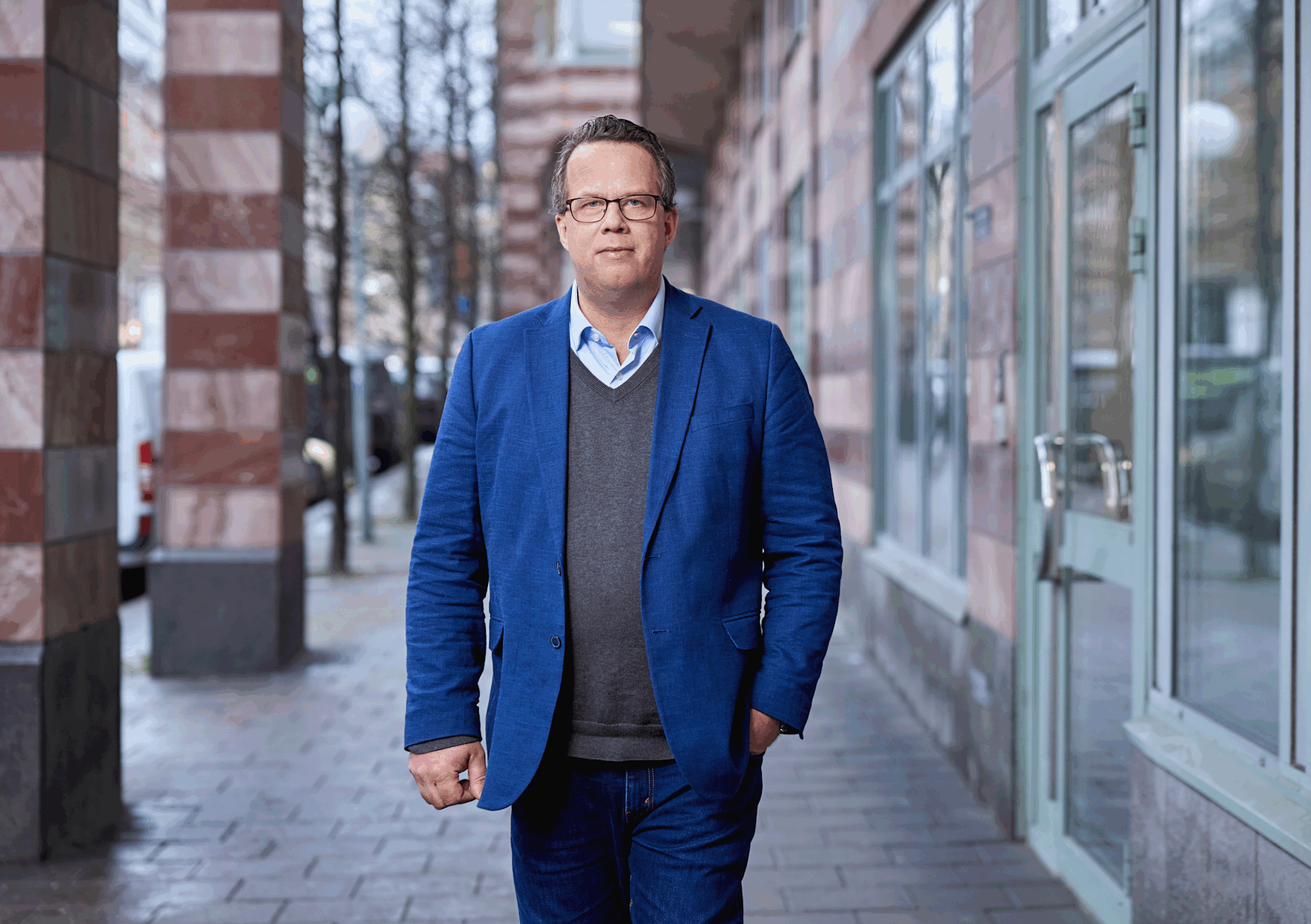
Martin Linder, confederation chairman Unionen. Photo: Peter Knutson
Kommunal organizes employees whose employers are in municipalities, county councils and the private sector and has 500,000 members.
Anna Spånt Enbuske is an investigator at the welfare policy unit:
1. - Municipal is found in many different industries and often in an ecosystem, one job is affected by the content of many other jobs. When AI affects other jobs to a greater extent, it will also affect us. After all, AI is a technology, so it's about what we're going to use it for, and what problem it's going to solve. For example, AI could be used to support the assessment of X-ray images, but it is not a robot or computer that does the actual plastering of a broken arm, it is done by a specialist nurse. An important question is how AI can contribute to less stress, a better work environment and support, where employees need to be involved in the development work.
2. - Most of our professional roles are difficult to replace with technology, because they are about human relationships. It's probably not something we want to replace with technology.
Anna Spånt Enbuske, investigator at Kommunal.
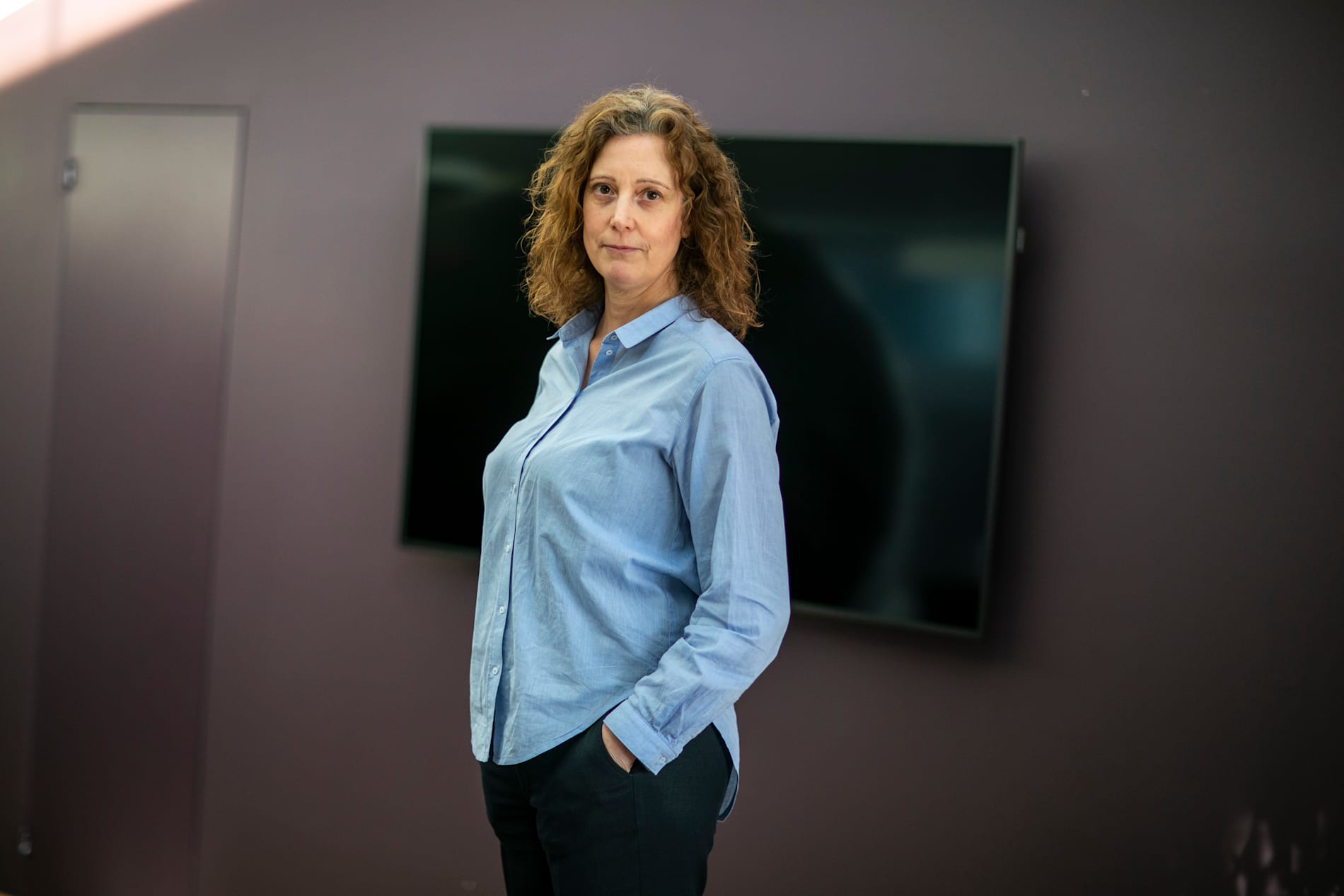
Anna Spånt Enbuske, investigator at Kommunal. Photo: Fredrik Sandin Carlson
IF Metall brings together 300,000 members who work in the industry.
Marie Nilsson is the union president:
1. - AI means great opportunities for the industry, but can also mean risks if it is not handled correctly. It can facilitate heavy and monotonous work, improve planning of operations and contribute to fewer occupational injuries. But it is important that development takes place on people's terms and that people should always be involved when digital technology is used to make decisions that affect the work.
2. - Most occupations may be affected to varying degrees. Some may disappear, while others are added. But it is very important that our members are given the right skills development and opportunities for adjustment to meet the change.
Marie Nilsson, union chairman IF Metall. Photo: Daniel Roos
Sweden's Teachers is a trade union for teachers and study and vocational guidance counselors, with 300,000 members.
Åsa Fahlén is chairman of the association:
1. - The future cannot be predicted, but history suggests that humanity finds something valuable in the real meeting between teacher and student. This suggests that preschool and school will very likely continue to be preschool and school as we know them today and as we have known them for hundreds of years.
2. - It is difficult to see that any professional group that we organize would be threatened. For all professional groups in our association, the human encounter is absolutely central to the goals and mission of the business, which is why it is difficult to see how AI could replace it.
Åsa Fahlén, chairperson of the Confederation of Swedish Teachers. Photo: Linda Broström
Sweden's engineers is a trade union for university-educated engineers in both the private and public sector with roughly 169,000 members.
Johan Kreicbergs is head of social policy:
1. - Many of the companies where our members work have worked with AI for several years. We currently see that our members are in high demand and that new professional roles and engineering types are emerging, such as "prompt engineers" who work on teaching AI. We believe that the companies that will be the winners of the AI journey are those that use AI to empower their employees, not to replace them. Laying off qualified employees and replacing them with robots is more desperate than smart.
2. - We believe that there will continue to be a strong demand for engineers, but on the other hand, they will probably work with partly different things than today. Repetitive and everyday tasks can be replaced with more advanced ones.
Johan Kreicbergs, social policy manager, Swedish Engineers Photo: Pernilla Pettersson/Sveriges Ingenjörer
Trade employees' union (Handels) gathers employees in trade. The association's approximately 155,000 members can be found, for example, in shops and in warehouses.
Daniel Söderberg Talebi is education and labor market policy ombudsman:
1. Artificial intelligence and also various forms of high-tech systems and automation do not make jobs disappear completely. However, we see that it becomes an aid and part of professions. There we see a huge challenge in that you have to give everyone the opportunity to keep up. Investments in competence development are then really required, so that everyone can take part in the development. That's important because we see that many of our members are expected to handle increasingly skilled things with these technological systems. Warehouse workers work with robots and store employees are assisted by AI and other systems, for example.
2. It is the wrong approach to see it as professional roles disappearing, jobs are not threatened. Instead, we see a development where AI becomes part of jobs, rather than jobs disappearing.
Daniel Söderberg Talebi, education and labor market policy ombudsman at Handels Photo: Handels
Union
Vision's members work within municipalities, regions, private companies or the church.
The association has 207,000 members.
Oskar Pettersson is deputy head of negotiations:
1. - We believe that AI will mean a great opportunity to simplify certain types of tasks by automating them. But it will not cause the function of employees to disappear completely. There will be room to deal with other issues instead of those whose duties are partially released.
2. - Threatened, I don't know, but I think that parts of tasks can certainly partially disappear. We already see today within, for example, social services that AI has been tested in preparation for some decisions, for example regarding different types of support. There are many types of decision-making processes as well where an AI could make the initial assessment, which a manager then double-checks. But it is important not to forget that this has a major impact on the tasks that remain. This is definitely an issue where employers need to involve workers.
Oskar Pettersson, deputy head of negotiations Vision. Photo: Gustav Gräll
Akavia brings together 135,000 economists, lawyers, social scientists, IT academics, human resource specialists and communicators.
Patrik Nilsson is director of social policy:
1. - What we know for sure is that all our members will be affected by AI development, albeit to different extents and at different rates. Considering that many of our members are managers and leaders, they will also have a big impact on how AI development in their businesses looks like.
- Generative AI will affect the entire chain of complex information, analysis and knowledge work, from the collection of information to the distribution of content and interaction with colleagues, customers, citizens and other actors. It will affect individual ways of working, but also work groups and organizational processes as well as the interaction with the outside world.
2. - Those who today have simple and automatable tasks will be affected to a greater extent and can understandably find the introduction of AI alarming. Some operations will likely be phased out, but we believe it is important to distinguish between work tasks and work opportunities. For our members, it is rather that the content of their work will change. As an individual, it is then important to future-proof your skills and think about what you can develop in parallel with AI taking over many of our simpler tasks.
Patrik Nilsson, Head of Social Policy at Akavia Photo: Press
Seko is a trade union that organizes 110,000 members in nine industries, including energy, defence, post, telecommunications and healthcare.
Jonas Pettersson is planning and communications manager:
1. - It is very difficult to assess at present. So far, we have not seen any dramatic developments.
2. - It is also difficult to assess right now. But it is clear that industries such as the rail transport area are an area where it could have an impact. We have many industries, but it is difficult to assess at the moment.
Jonas Pettersson, planning and communications manager at Seko. Photo: Anna Ledin
Wiren
Byggnads is the union for all construction workers. Over 100,000 people are members.
Gabriel Dahlander is press officer:
1. - AI and digitization are still in their infancy in the construction industry. Among other things, we see great opportunities to use AI for, among other things, a safer work environment. Today, tests are being carried out with, among other things, AI-controlled warning clothing and algorithms that help scaffolders build safe scaffolding. Sustainability work is also generally neglected in the construction industry, and there AI and digitization can have great potential.
2. - In the short term, digitization will primarily affect civil servants in, for example, planning. In the longer term, robots may take over certain physical tasks. But it is difficult to say that certain specific professional roles will disappear. We don't see it as professions being threatened, but rather it's about developing employees' skills in step with digitization. The important thing is that people have the opportunity to adjust and take the new jobs that are created.
Gabriel Dahlander, press officer, Byggnads. Photo: Terese Perman
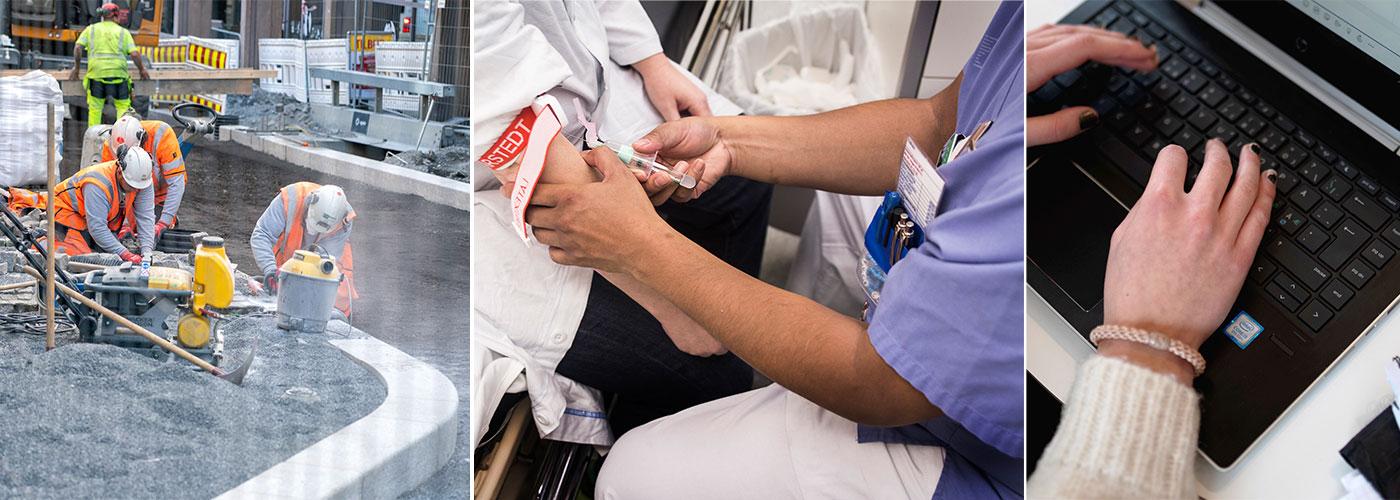
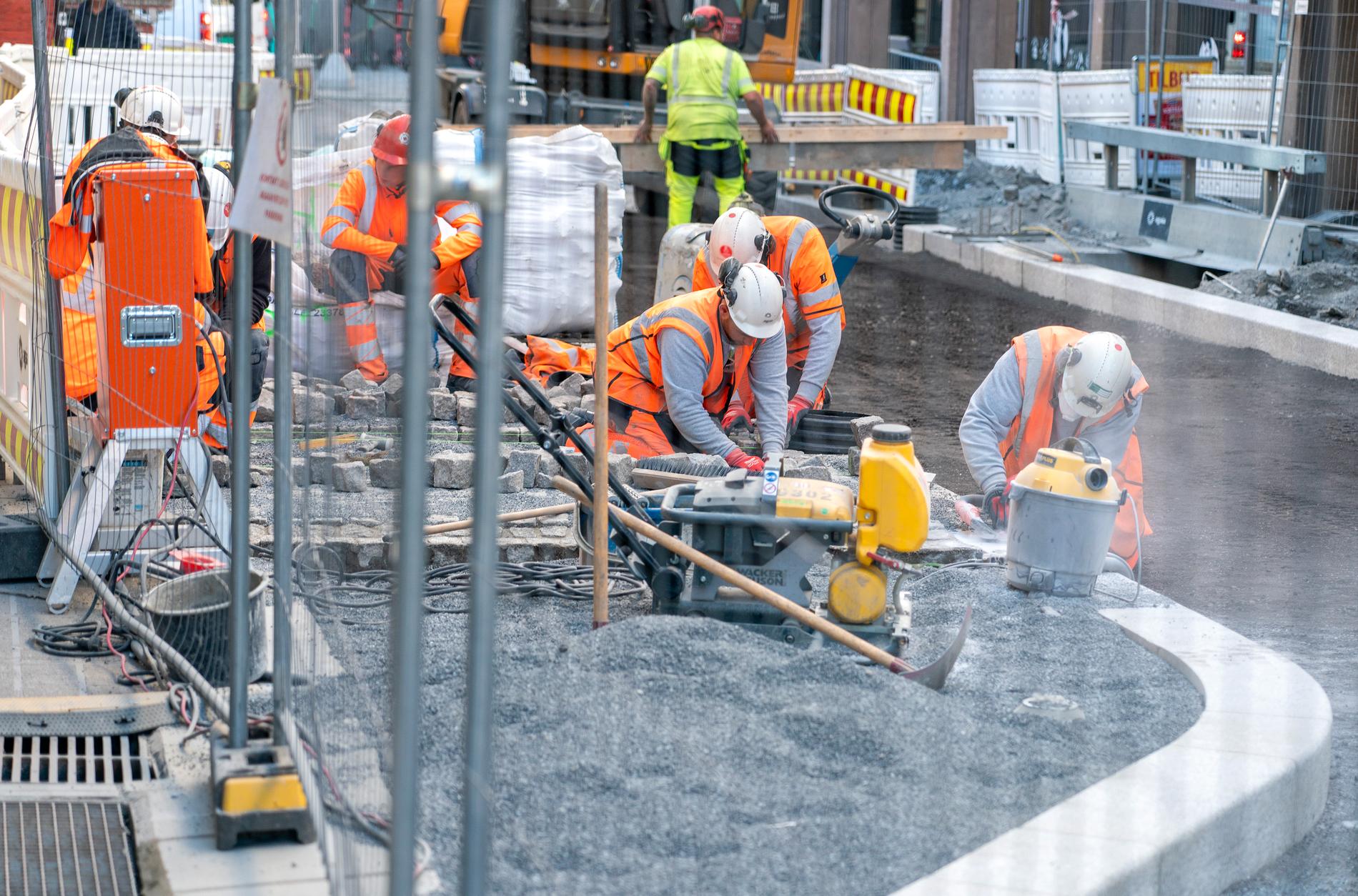

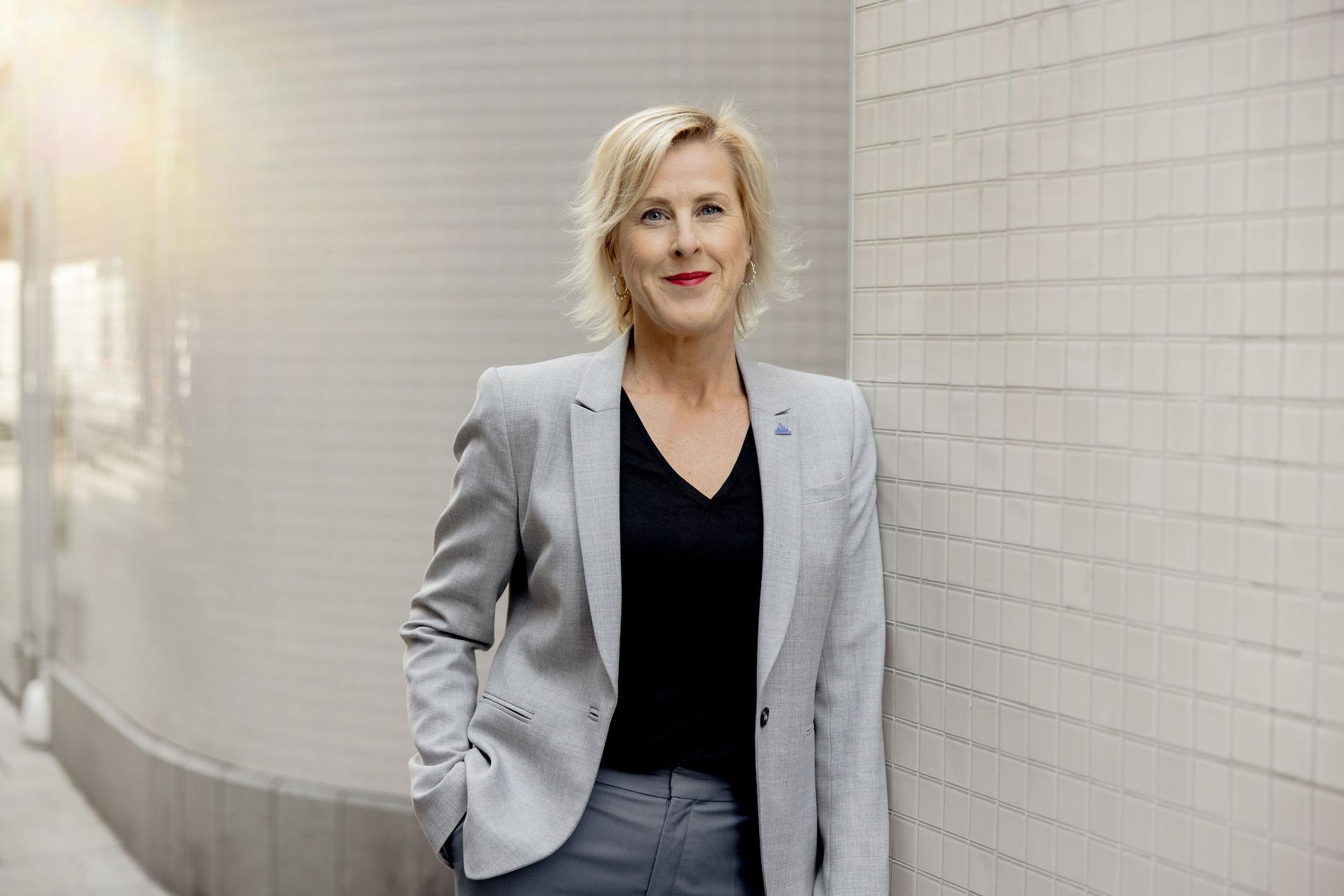




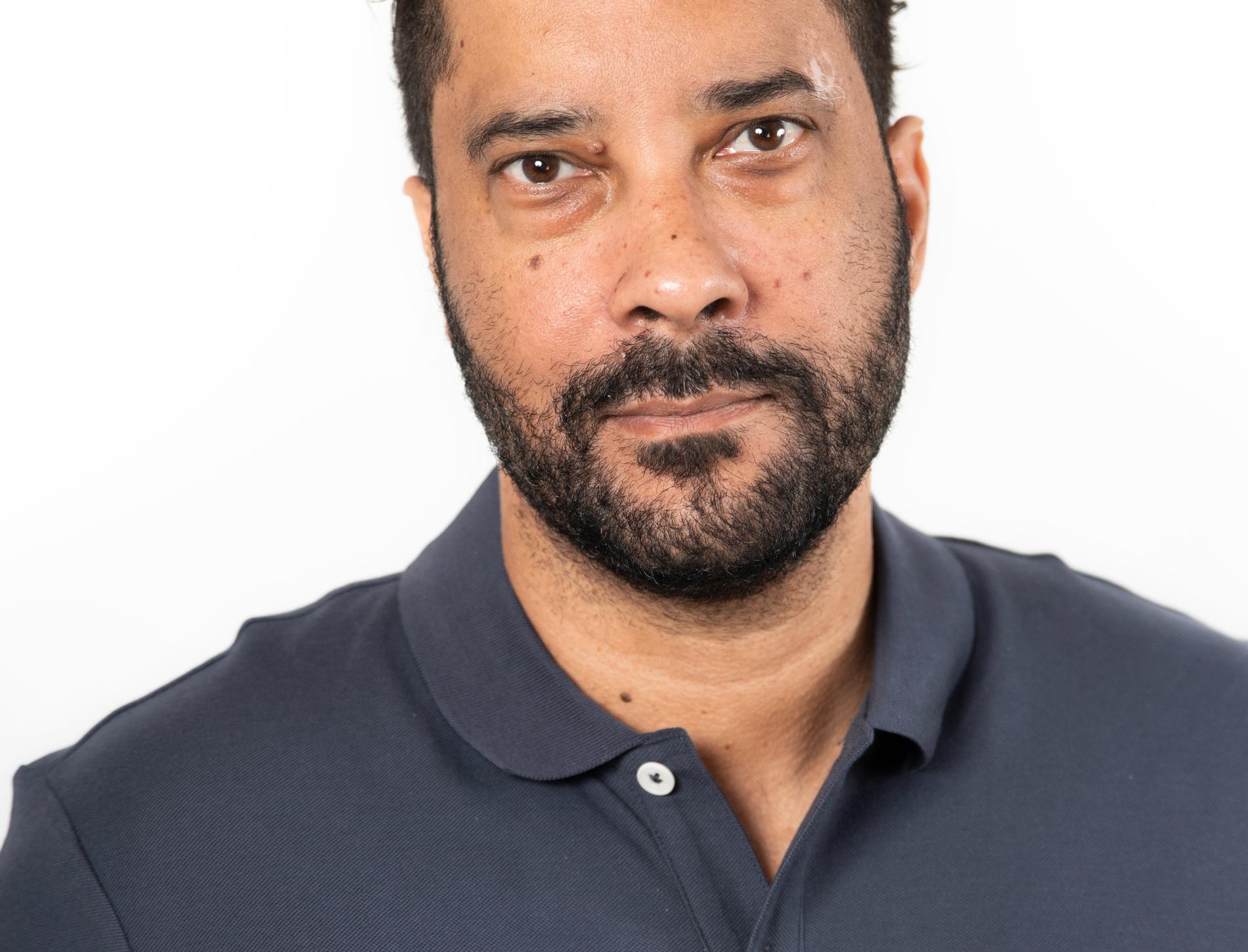
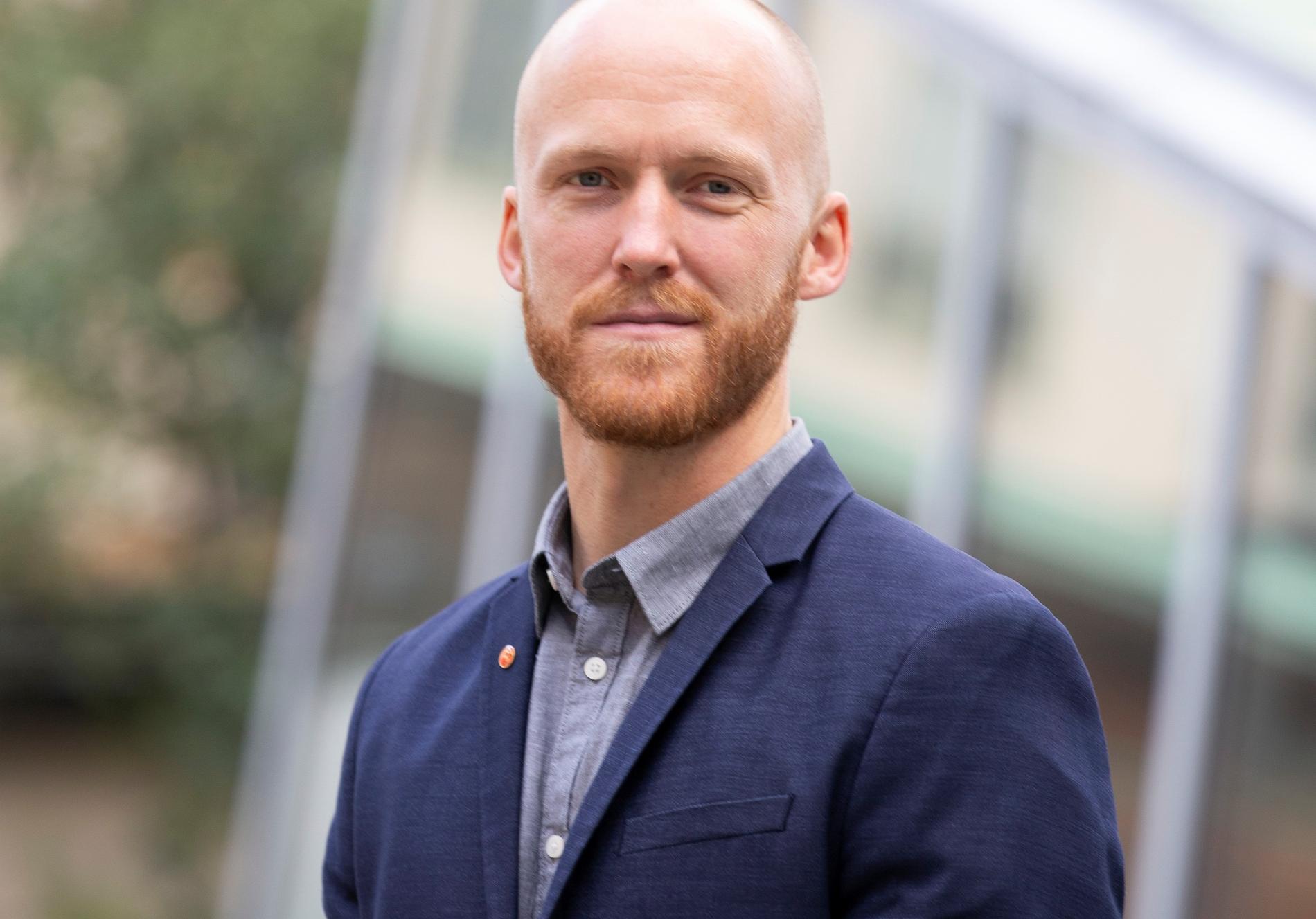


Inga kommentarer:
Skicka en kommentar